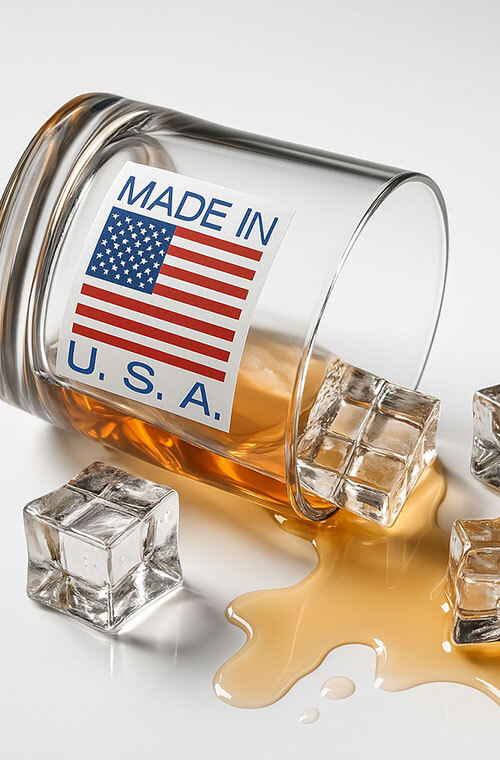
If you thought tariffs were something that only affected car parts and bad political takes, think again. Booze has officially entered the chat—again.
It started in 2018 when the Trump administration threw the first punch with tariffs on European wine and spirits, igniting a full-on trade war. The European Union retaliated with a 50% tax on American whiskey, and American exports tanked almost immediately—down 27% in one year. Then came the big “hold my beer” moment: the U.S. threatened a 200% tariff on European wine.
.jpg)
Cue mass panic buying, canceled imports, and a noticeable uptick in deeply annoying dinner conversations that start with, “Actually, this Burgundy cost me triple because of macroeconomic instability.”
But if you think this chaos is unprecedented—oh no, my friend. Tariffs and taxes on alcohol have been pissing people off since before we had a Constitution. The very first U.S. alcohol tax in 1791 sparked the Whiskey Rebellion, which ended with President George Washington personally leading a militia to shut it down. Casual.
Then there was the “Tariff of Abominations” in 1828 (yes, that’s the actual name), which taxed foreign rum and helped stir the pot that eventually boiled over into the Civil War. Later, during Prohibition, the government realized maybe banning alcohol wasn’t financially brilliant, especially during the Great Depression when liquor taxes had been funding 40% of the federal budget.
.webp)
Fast forward to now, and we’re back in that historical loop of “maybe don’t mess with the booze.” Canadian stores are yanking California wines off shelves. Ontario alone moves nearly a billion dollars' worth of California wine annually, and those taps just got shut off. Importers are broke. Distributors are shelving U.S. wines to survive. Consumers are furious. And yes—someone literally spray-painted “Boycott American Wine” on a Montreal liquor store.
Even retailers are getting heat just for keeping American wine on shelves. “Some customers call it unpatriotic,” says one Canadian shop owner. Bold words for someone holding a $60 bottle of Pinot from a Vermont micro-vineyard.
And let’s not forget the kicker: while the government hopes tariffs will boost domestic booze, many U.S. wine shops rely on European sales for their profit margins. One American importer admitted if the tariffs stick, their business—and the 80 domestic wineries they represent—are toast.
Bottom line? Tariffs have never worked. They don’t make American alcohol more competitive—they just make everyone broke and bitter. And this time, even your $25 bottle of Grenache isn’t safe.
Cheers to paying more for less, folks. We’ve earned it.